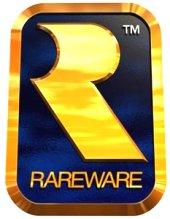 In an interesting interview this week at 1up.com, Peter Moore, now at Electronic Arts, believes the skillset that Rare holds is a bit dated for our gaming industry. Moore, best known in his role of VP at Microsoft in their Interactive Entertainment Business division, understands how great Rare and their games once were but seems to believe the industry has passed them by.
In an interesting interview this week at 1up.com, Peter Moore, now at Electronic Arts, believes the skillset that Rare holds is a bit dated for our gaming industry. Moore, best known in his role of VP at Microsoft in their Interactive Entertainment Business division, understands how great Rare and their games once were but seems to believe the industry has passed them by.
Looking at their latest Microsoft titles, mainly Perfect Dark Zero, Viva Pinata and Kameo: Elements of Power, it’s not hard to believe his statements as fact. None of the titles have blown away a market full of Grand Theft Autos, Halo’s and other top selling titles. None of their games hit the epic review scores of Bioshock or Crysis. It’s not all first person shooters are taking the big sales numbers; Spore was given rave reviews by online review sites (sans Amazon) and that’s a completely different style of game.
Popcap’s Peggle has had more fame and glory than some of the bigger titles from Rare, probably made with less money. Is Rare a dying breed of developers with no good direction to react to the changing ways of the game industry?
No. Peter Moore is missing a big part of the changes in Rare since their 2002 purchase by Microsoft. The major difference is… Microsoft. Microsoft had plans to make Rare Ltd as successful on their own console as Rare had with the Nintendo 64. Moore says:
“I thought ultimately [Viva Pinata] would be very successful — and you know, Microsoft, we’d had a tough time getting Rare back — Perfect Dark Zero was a launch title and didn’t do as well as Perfect Dark… but we were trying all kinds of classic Rare stuff and unfortunately I think the industry had past Rare by — it’s a strong statement but what they were good at, new consumers didn’t care about anymore, and it was tough because they were trying very hard — [original Rare founders] Chris and Tim Stamper were still there — to try and recreate the glory years of Rare, which is the reason Microsoft paid a lot of money for them and I spent a lot of time getting on a train to Twycross to meet them. Great people. But their skillsets were from a different time and a different place and were not applicable in today’s market.” (1up)
Perhaps if Rare had the ability to pick and choose their own platform for their own desires and innovation they’d have a killer Wii game for the market. Nintendo and Rare had a great partnership in the making of Donkey Kong Country, a product they couldn’t do on their own due to the intellectual properties but managed to create a memorable franchise when combining forces. Imagine, taking Donkey Kong to such awesome levels with a ground breaking and well crafted title with high quality graphics on a low quality system.
What about GoldenEye 007? A game that changed the first person shooter landscape on the console and sold over 8-million copies on a Nintendo platform. Along with their hot back log of titles is that of BattleToads, a game which was well received by reviewers but insanely difficult for gamers to master. Of course, Banjo-Kazooie was another great title from the folks at Rare, most of which was made famous on a non-Microsoft console.
What’s the lesson? Don’t point fingers at the creative talents behind the projects and future decisions when you’re boxed into a single console under someone elses name. For a developer to thrive and grow they need space to do it, they need to be fully able to access all the gaming hardware in the industry. Microsoft tried to fit a round peg and a square hole and paid $375 million to figure it out.

 What a dilemma it is, Sony’s PlayStation 3 isn’t as hot as the Nintendo Wii in Japan. Even the Xbox 360 has had some minor success stories in Japan while Sony sits back saying “wtf?”
What a dilemma it is, Sony’s PlayStation 3 isn’t as hot as the Nintendo Wii in Japan. Even the Xbox 360 has had some minor success stories in Japan while Sony sits back saying “wtf?”
0 thoughts on “Has Rare Lost Touch With The Gaming Industry?”